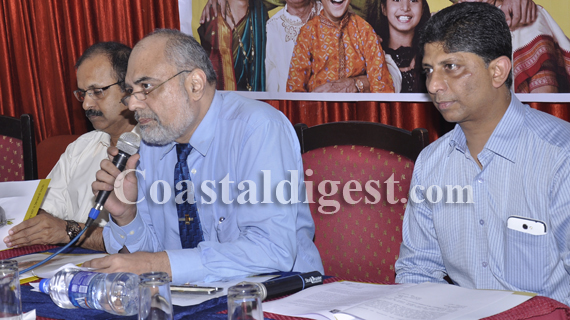
Mangalore, July 24: The management of Manipal University announced that the enrollment process of members under Manipal Arogya Card scheme for the year 2013 would close on July 31.
Speaking at a press conference held here on Tuesday, Dean of Kasturba Medical College, Mangalore, Dr M V Prabhu said that the scheme had been instituted in 2001 as part of its social initiative, to provide quality healthcare at an affordable cost to a large section of the society.
He said that a member could avail benefits on in-patient and out-patient treatment in network hospitals in the coastal belt through discounts. The members enrolling for the scheme had to pay a membership fee, with which a member was entitled to free consultation with any specialist doctor at KMC Hospital at Attavar and 50 per cent discount on consultation with a specialist doctor at KMC Hospital at Ambedkar Circle any number of times in a year.
Apart from KMC Hospital, the benefits of the card can be availed at network hospitals such as Kasturba Hospital in Manipal, Dr T M A Pai Hospitals in Udupi and Karkala and Manipal College of Dental Sciences in Mangalore and Manipal.
Enrollment for the card was priced at Rs 250 for an individual, and Rs 500 for a family. There was no age limit to avail the benefits of the Arogya Card scheme.
A helpline has been set-up in Mangalore to provide more information about the scheme, at 0824-2444590 or 9972388991.
Medical Superintendent of KMC Hospital, Attavar Dr Madhusudan Upadhya and KMC Hospital, Ambedkar Circle Dr Anand Venugopal were present.





Comments
we like
I want to regesiter arogya card in online please give me a website
Add new comment